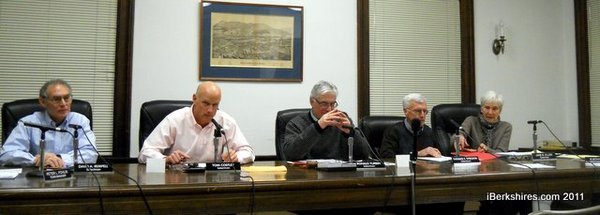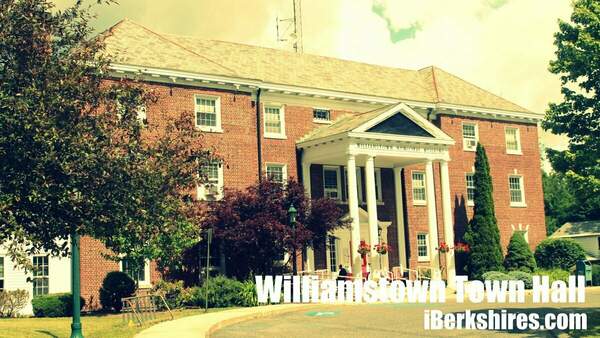
Increased McCann Contribution Puts Williamstown In Budget Bind

file photo
Town Manager Peter Fohlin expressed frustration in reduced state aid.
|
The town's contribution will nearly double for fiscal 2012 with an increase of $124,381 from $190,349 to $314,730. The result is a need to cut an additional $50,000 in municipal funds and the schools will need to reduce to their 2011 amounts in order to achieve a balance budget, according to Town Manager Peter Fohlin.
"If we have to cut that $50,000, for the first time in 11 years; someone or someones will have to lose their jobs," Fohlin told the Selectmen on Monday. "Somebody's neighbor will lose their job. Somebody with a family will lose their job."
"The state has just abandoned us."
Fohlin said he does not know why the increase is needed and that there are still numbers that need to be finalized before the town can begin to find the projected cuts. State aid is projected to be cut by $37,012 if Gov. Deval Patrick's recommendations are passed in the legislature.
A preliminary budget Fohlin presented to the Selectmen on behalf of the finance committee called for a property tax increase of 28 cents per $1,000 of assessed value from $12.70 last year to $12.98 for 2012. That rate translates to a tax bill of $1,298 for a $100,000 home. The water, sewer and transfer station rates will remain the same, he said.
Fohlin revealed fire in his gut as he passionately recapped budgeting issues the town has faced. Cutting state aid has been "packaged" to appear not so bad because education funding has increased, Fohlin said, but the increase does little to help the town when it is forced to take on other burdens.
"The $5,000 increase [in education] is not just inadequate but it's a joke with the cuts in unrestricted aid," Fohlin said. "Because Williamstown contributes more to our schools they're assumption is that we don't need it. As it becomes more and more difficult for people of modest means to live here they move out. Then our median income increases and they look at us and say 'they're getting richer every year.'"
"It's a nasty and insidious circle," Fohlin said. "If we could have them cut our local aid to zero and leave us alone on everything else, we'd be OK."
Crafting the early drafts of the 2012 budget not only faced decrease state aid and the additional school funding but the town's health insurance rates jumped by 5 percent.
"A lot of these numbers look really bad but it could be worse," Selectwoman Jane Allen said. "I saw that Lanesborough's health insurance rates are jumping by 12 percent."
Selectmen David Rempell pointed out that health insurance rates are bankrupting towns in other states. Fohlin said health insurances rates did not increase as much as other cities and towns because the town employees pay a higher portion.
Town hall employees pay 25 percent of their health care costs and police, public works and non-union town employees entered an agreement that sets the town's contribution at 75 percent of the lowest health care plan, Fohlin said.
"It pushed all but two employees to the lowest priced plan," Fohlin said.
In other discussion, Fohlin told the Selectmen that five plow trucks slid off dirt roads on Saturday night — three of which had to be towed out at a cost of $400 each.
"Once the truck breaks traction, there is no stopping it," Fohlin said.
Rempell asked if there will come a point where the town will decide not to maintain some of the dirt roads and Fohlin said there was not.
"No because there are people who live there. There are people who pay taxes. There are people who might have a medical emergency," Fohlin said. "That is what we do."
Also related to the weather, Fohlin said he had heard some contractors are asking exorbitant fees to clear snow off roofs. County roofs have been collapsing because of the heavy snow.
"It would pay to ask for three or four quotes and make sure the contractor has insurance," Fohlin warned.















